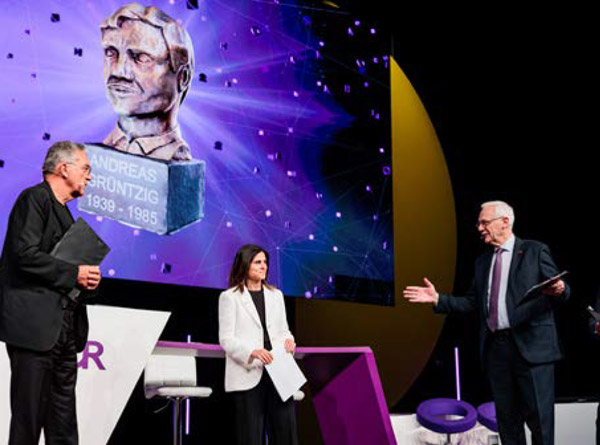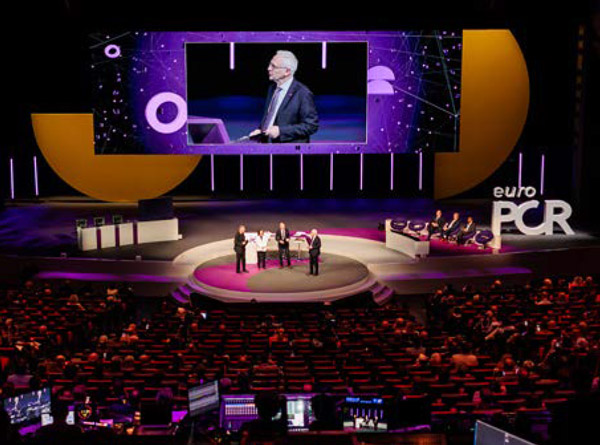17 May 2023
Awarding the Emergency Medical Services for their indispensable work - EuroPCR 2023
Each year at EuroPCR, the Andreas Grüntzig Ethica Award – the highest honour in the interventional cardiology community – is presented to individuals who have contributed in an extraordinary way to the PCR mission. This year, as we celebrate 30 years of primary PCI in STEMI, the global community of Emergency Medical Services (EMS) is being recognised for their invaluable efforts, which help save the lives of countless patients every year.
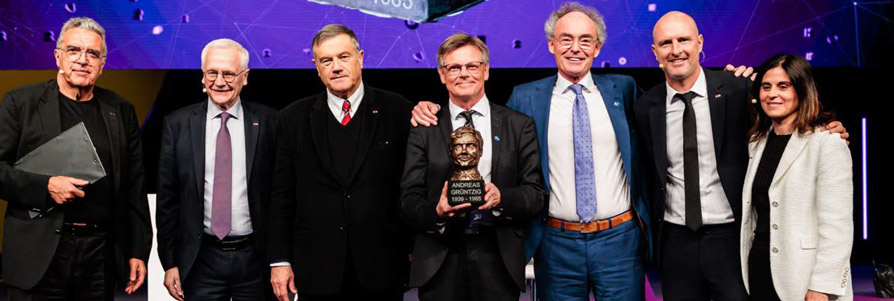
During the Welcome Ceremony, the Ethica Award was received by Professor Pierre Carli, Dr Martin Smeekes and Dr Freddy Lippert – European leadership representatives of the worldwide EMS system. Video messages of thanks from representatives of worldwide EMS associations were testament to their delight at being recognised with the Ethica Award. We heard from Dr José G. Cabañas from the National Association of EMS Physicians (NAEMSP), Mr David Waters from the Australasia Council of Ambulance Authorities, Professor Marcus Ong from the Asian Association for EMS (AAEMS) and Ms Ann Doll from the Global Resuscitation Alliance. The overriding message was that ‘it takes a system to save a life,’ and that the EMS play a crucial part in that system.
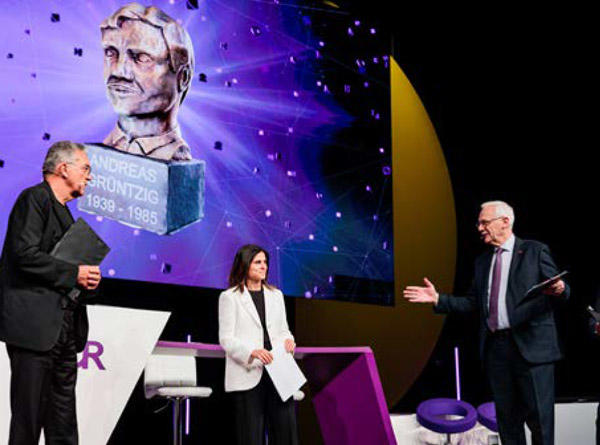
While the skills used to perform PCI are critical to the quality of the procedure, the time taken to reach the cathlab is the first step to achieving the best possible outcomes. “Any delay in getting a patient to the cathlab can be reduced drastically by the professional organisation of emergency healthcare professionals,” says Dr Jean Fajadet, Co-Chairman of the PCR Board, “and this is why we wanted to present the Ethica Award to the EMS. It is thanks to the professionalism of the EMS teams that we can perform emergency procedures appropriately and save our patients’ lives.” He continues, “We think bestowing the Ethica Award on the EMS shows how much we as interventional cardiologists appreciate the work of the EMS and it is a sign that we value our important relationship with them.”
The EMS are responsible for more than just transportation of acutely ill patients to the cathlab. Professor William Wijns, Chairman of the PCR Board, says, “EMS professionals are key to confirming a diagnosis, initiating treatment and performing emergency measures. With this Award, we were keen to highlight the collaboration between the different healthcare professionals involved and the fact that each makes an important contribution.” Professor Wijns is quick to point out that there are always ways to build an even stronger relationship: “We continually strive to optimise communication between all stakeholders – both before and after hospital admission – in order to achieve the best possible experience for our patients.”
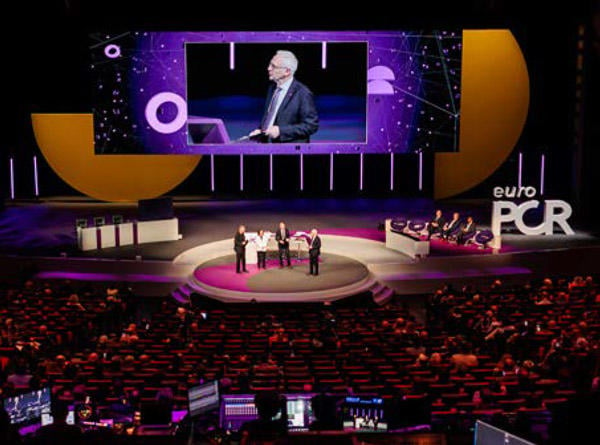
We all have different roles to play, but we are working toward the same goal.
The new EuroPCR Course Directors think the celebration of the work of the EMS links perfectly with one of this year’s main themes. Dr Nieves Gonzalo says, “We applaud the roles of the pioneers of primary PCI, but without the work of EMS teams, primary PCI would never have been successful. Moreover, the STEMI network can be a model for the development of interventional procedures for other time-dependent conditions, for example, stroke, where we also need the EMS’ help.”
Dr Thomas Cuisset comments on the contribution of EMS teams to improvements in STEMI prognosis observed over recent decades: “The proportion of patients receiving primary PCI for STEMI has increased in the last few years, while the time delay to balloon or stent has decreased. Building the STEMI network from the patient’s home to the cathlab has really made a difference in improving prognosis.” With the other Course Directors, he highlights the importance of recognising the EMS from a worldwide perspective. “We know that processes in France, India or Latin America, for example, are completely different. It is by sharing and working together that we will be able to improve and learn from each other to optimise the STEMI network.”
Dr Nicolas Dumonteil highlights, “Since EuroPCR has a global reach, we were mindful of the huge variation in practices, but also who constitutes the EMS in different regions. The Ethica Award to EMS teams therefore covers some physicians, emergency room doctors, emergency specialists, paramedics, nurses and even firefighters in some countries.”
The patient who experiences an ACS with ventricular fibrillation – and whose life is saved by an EMS team – understands the value of the EMS, whoever is involved, and it is time for PCR to shine a light on their work too.



